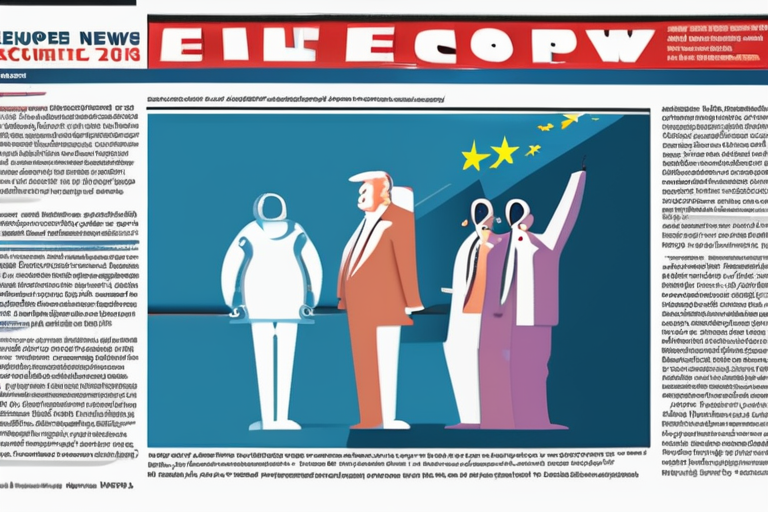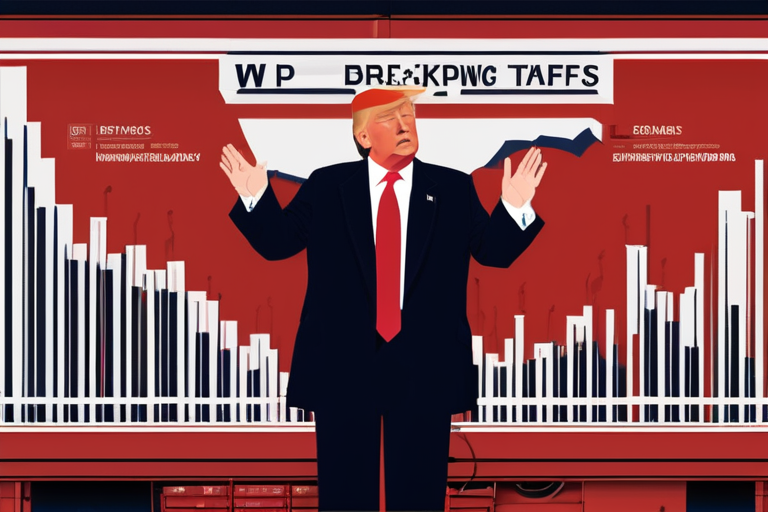European Union officials may cut growth forecasts for 2026 in the coming week in an assessment of damage to the region's economy, a year after Donald Trump won back the White House. The outlook to be released in Brussels on Monday will point to the cumulative impact of trade threats and higher tariffs imposed by the US, along with the challenges of persistent weakness in Germany and political turmoil in France.
According to sources, the economic assessment will highlight the effects of Trump's trade policies, including the imposition of tariffs on European steel and aluminum imports. "The tariffs have had a significant impact on European industries, particularly in the manufacturing sector," said a senior EU official, who wished to remain anonymous. "We are seeing a decline in exports and a rise in production costs, which is affecting the overall economic growth."
The EU's economic growth forecast for 2026 is expected to be revised downward, reflecting the region's vulnerability to external shocks. The forecast is based on a range of indicators, including GDP growth, inflation, and unemployment rates. "The trade tensions with the US have created uncertainty and volatility in the global economy," said a spokesperson for the European Commission. "We are working closely with our member states to mitigate the effects of these tensions and promote economic growth."
The challenges facing the EU's economy are not limited to trade tensions. Germany, the region's largest economy, has been experiencing persistent weakness, with growth slowing down in recent quarters. France, meanwhile, is grappling with political turmoil, including a presidential election scheduled for next year. "The economic outlook for the EU is complex and challenging," said a senior economist at a leading think tank. "We need to address the structural issues in the economy, including low productivity growth and high unemployment rates."
The EU's economic assessment will provide a comprehensive picture of the region's economic performance and prospects. The report will be released on Monday, and it is expected to have significant implications for policymakers and businesses across the region. The assessment will also provide a benchmark for future economic growth and will inform policy decisions in the coming months.
In the coming weeks, the EU will continue to monitor the economic situation and adjust its policies accordingly. The region's policymakers will also engage with their US counterparts to address the trade tensions and find a mutually beneficial solution. As the global economy continues to evolve, the EU will need to adapt to the changing landscape and promote economic growth and stability.


























Share & Engage Share
Share this article